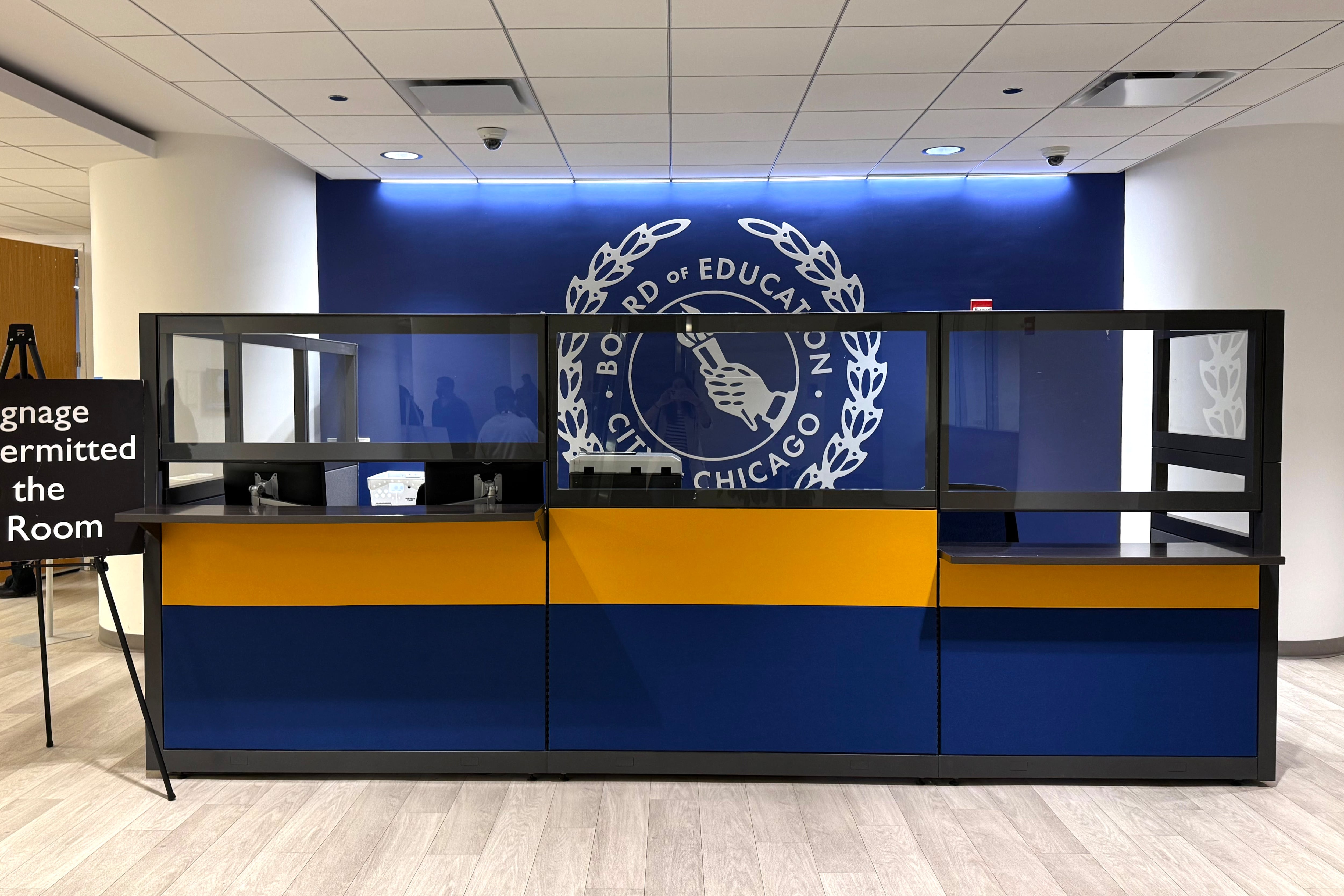Sign up for Chalkbeat Chicago’s free daily newsletter to keep up with the latest news on Chicago Public Schools.
Ahead of a pivotal vote on Chicago Public Schools’ budget, Mayor Brandon Johnson has filled a seat on the Chicago Board of Education that has been vacant for the past two months.
Johnson is appointing Ángel Vélez, a diversity, equity, and inclusion consultant who lives in West Englewood, city hall confirmed.
Vélez will fill the South Side district seat left vacant by Frank Niles Thomas, who served from last November until June 11. He will represent neighborhoods from Canaryville to Auburn Gresham, which make up subdistrict 9a.
The choice of Vélez was first reported late Tuesday by WBEZ, who reported that he went to Clemente High School in Humboldt Park and his children now attend a Chicago public school. Vélez holds a doctorate in education policy, organization and leadership, from the University of Illinois at Urbana-Champaign, according to the public radio station.
The 21-seat school board has 10 elected positions and 11 others that are appointed by the mayor. The board will be fully elected by 2027. The new appointment would again ensure mayoral appointees make up the majority on the board. Thomas stepped down after a key vote in June: appointing city hall advisor and former CPS principal Macquline King as interim CPS CEO.
The mayor’s pick comes one day ahead of a vote on the district’s proposed $10.2 billion budget which board members are divided over. Shortly after the budget presentation earlier this month, 11 board members — nine mayoral appointees and two elected members generally aligned with the mayor — penned a letter signaling their opposition to the plan and asked for the inclusion of a $175 million pension reimbursement to the city and a loan “as an option” to avoid cuts.
King’s proposed plan does not include the city pension reimbursement, which the mayor said he’s expecting CPS to pay as the city also seeks ways to balance its own budget.
CPS has said that reimbursing the city for that pension cost, which is not legally required, would result in midyear cuts to schools, but the district would make the pension payment if it received more state dollars or additional city funds from a pool of taxpayer dollars meant to spur economic development.
But board members who support borrowing and reimbursing the city for a portion of the municipal pension payment have argued that CPS must rely on the city less to help pay its bills as it transitions into a fully elected body, and having the option for a loan would help avoid cuts in the middle of the school year.
While the proposed budget excludes a short-term, high-interest loan, it does include other borrowing. In a memo obtained by Chalkbeat, CPS officials continued to caution board members against additional borrowing because it could trigger a credit downgrade.
“Importantly, we anticipate that including additional borrowing authority in the budget — even if not used — would still result in a downgrade,” the memo said.
Chicago schools’ debt burden is the third-highest among large districts and amounts to roughly $28,000 per student.
Board member Ebony DeBerry, one of the elected members who signed the letter opposing the budget proposal, told Chalkbeat this week that she plans to vote with her constituents. So far, she says, they have said they don’t want the district to take out another loan or to reimburse the city for the pension payment, which contributes toward the retirement of non-teaching staffers.
While it’s unclear how the vote will shake out, an additional mayoral appointee could help solidify enough votes to oppose the district’s proposed budget and pass a plan that includes the pension payment, as well as a loan.
The mayor and his strongest ally, the Chicago Teachers Union, once advocated for CPS not to pay the pension payment; Johnson’s mayoral transition team report recommended the city stop asking CPS to kick in. The district began reimbursing the city for the payment under former Mayor Lori Lightfoot, but declined to pay it last year under former CPS CEO Pedro Martinez, as it faced budget challenges. That decision helped lead, in part, to Martinez’s firing.
Johnson and CTU have since changed their stance, with the CTU also advocating for the district to reimburse the city.
Becky Vevea contributed.
Reema Amin is a reporter covering Chicago Public Schools. Contact Reema at ramin@chalkbeat.org.






